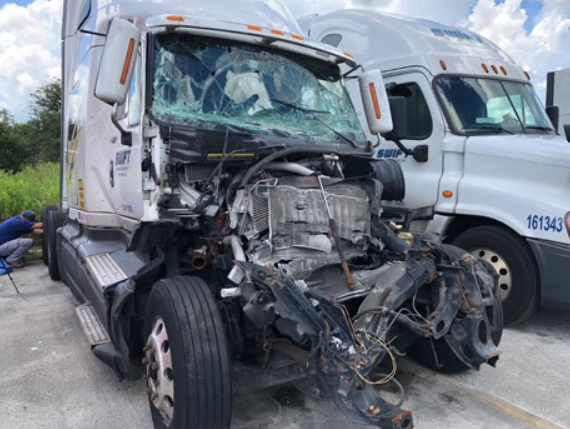Overview of Common Heart Surgery Complications
Heart surgery, while often a life-saving procedure, carries with it a spectrum of potential complications that can have significant implications for patients. Understanding these complications is crucial not only for medical professionals but also for legal practitioners who may be called upon to represent clients in cases of alleged medical malpractice related to heart surgery. Here, we will delve into common heart surgery complications and their relevance in the context of medical malpractice.
First and foremost, one of the most prevalent complications following heart surgery is infection. Despite stringent sterilization protocols and antibiotic prophylaxis, surgical site infections can occur. These infections range from superficial wound infections to more severe mediastinitis, an infection of the central chest cavity. For a lawyer handling a malpractice case, it's essential to scrutinize whether proper aseptic techniques were followed and if postoperative care adhered to standard protocols.
Another significant complication is bleeding. Postoperative hemorrhage can arise due to various factors including surgical technique, coagulation disorders, or medication effects such as anticoagulants. Excessive bleeding might necessitate reoperation or lead to other serious conditions like cardiac tamponade-where blood accumulates around the heart restricting its function. Legal professionals must investigate whether there was timely recognition and appropriate management of bleeding complications.
Arrhythmias are also common after heart surgeries, particularly atrial fibrillation (AFib). While AFib can be transient and manageable with medications or cardioversion, its occurrence increases the risk for stroke significantly. In cases alleging malpractice, examining whether arrhythmias were promptly diagnosed and adequately managed becomes critical.
Neurological complications such as stroke are among the most devastating outcomes post-heart surgery. Factors contributing to stroke include dislodged plaques during surgery or emboli formation due to atrial fibrillation. Lawyers should meticulously review perioperative records for any lapses in monitoring or preventive measures that could have mitigated this risk.
Renal failure represents another serious concern post-surgery. The kidneys are particularly vulnerable during major cardiac procedures due to fluctuations in blood pressure and potential nephrotoxic effects of certain medications used during surgery. A thorough analysis of preoperative renal function assessments and intraoperative management strategies is paramount when evaluating potential negligence.
Lastly, respiratory complications such as pneumonia or prolonged need for mechanical ventilation can significantly impact recovery times and overall outcomes for patients undergoing heart surgery. Ensuring that ventilatory support was managed according to standards and that preventive measures against pneumonia were implemented is vital in any legal assessment of postoperative care quality.
In conclusion, representing clients in medical malpractice cases related to heart surgery requires a deep understanding of common postoperative complications such as infection, bleeding, arrhythmias, neurological issues like stroke, renal failure, and respiratory problems. Each complication necessitates careful examination of medical records and expert testimonies to determine whether deviations from standard care occurred. By thoroughly investigating these aspects, lawyers can build robust cases either defending healthcare providers or advocating on behalf of affected patients seeking justice for their suffering.
Legal Definition and Criteria for Medical Malpractice
Medical malpractice is an area of law that addresses the negligence or misconduct by a healthcare professional, resulting in harm to a patient. When it comes to heart surgery, the stakes are incredibly high due to the complexity and critical nature of these procedures. medical malpractice lawyer Tacoma . If complications arise, determining whether they constitute medical malpractice involves examining specific legal definitions and criteria.
At its core, medical malpractice occurs when a healthcare provider deviates from the standard of care expected in their field, causing injury or death to a patient. The "standard of care" refers to what a reasonably competent healthcare professional would do under similar circumstances. Given the intricate nature of heart surgery, this standard is particularly stringent; even minor deviations can have severe consequences.
For a successful medical malpractice claim related to heart surgery complications, several key elements must be established:
1. **Duty**: The first element is demonstrating that there was a duty owed by the healthcare provider to the patient. This relationship is typically straightforward in surgical cases since surgeons and their teams inherently owe a duty of care to their patients.
2. **Breach**: Next, it must be shown that this duty was breached. In other words, the surgeon's actions fell below the accepted standard of care. For example, if a surgeon fails to properly monitor vital signs during surgery or neglects necessary pre-operative assessments, these could be considered breaches.
3. **Causation**: Establishing causation is often one of the most challenging aspects. It needs to be proven that the breach directly caused harm or complications that wouldn't have otherwise occurred. In heart surgeries where risks are inherently high, distinguishing between unavoidable complications and those arising from negligence can be complex and typically requires expert testimony.
4. **Damages**: Finally, there must be quantifiable damages resulting from the breach. These can include additional medical bills for corrective procedures, pain and suffering endured by the patient, lost wages due to extended recovery times or permanent disability, among others.
Given these criteria's complexity and specificity in heart surgery cases, having an experienced lawyer specializing in medical malpractice is crucial for navigating this intricate landscape. Such lawyers possess not only legal expertise but also access to medical experts who can scrutinize surgical records and provide pivotal testimony regarding deviations from accepted practices.
Furthermore, specialized attorneys understand how courts interpret nuances in medical standards and are adept at constructing compelling arguments around causation-a notoriously tricky aspect in proving medical negligence claims.
In conclusion, medical malpractice related to heart surgery hinges on clearly establishing duty, breach of duty, causation between breach and injury as well as resultant damages. The process demands meticulous attention to detail and specialized knowledge both legal and medical fields offer-making seasoned malpractice attorneys indispensable allies for affected patients seeking justice and compensation for their suffering.
Steps to Take if You Suspect Medical Malpractice
When it comes to heart surgery, the stakes are incredibly high. The heart is not just a vital organ; it is the engine that keeps the body running. Therefore, when complications arise from heart surgery, the emotional and physical toll can be devastating. If you suspect that medical malpractice has contributed to these complications, it's crucial to take specific steps to protect your rights and seek justice.
First and foremost, prioritize your health or the health of your loved one. Immediate medical attention should be sought from another healthcare provider who can offer an unbiased second opinion on the situation. This step is essential not only for addressing any immediate health concerns but also for establishing a professional medical perspective on what might have gone wrong during the initial surgery.
Once you've secured necessary medical care, gather all relevant documentation related to the surgery and subsequent complications. This includes medical records, prescriptions, surgical notes, and even communication with healthcare providers. Detailed documentation will serve as critical evidence should you decide to pursue a malpractice claim.
Next, consult with a lawyer who specializes in medical malpractice cases specifically related to heart surgery complications. Such attorneys have specialized knowledge and experience that can make a significant difference in understanding the nuances of your case. They can help you determine whether there is sufficient evidence of negligence or deviation from standard care protocols.
Your lawyer will likely advise you to obtain an expert medical opinion. This involves consulting with another cardiac surgeon or healthcare professional who can objectively assess whether malpractice occurred. Expert testimony is often pivotal in substantiating claims of negligence or substandard care.
After gathering all necessary information and expert opinions, your attorney will guide you through filing a formal complaint against the responsible parties-be it individual healthcare providers or institutions like hospitals or clinics. Legal procedures may vary by jurisdiction but generally involve submitting detailed documentation outlining your allegations and supporting evidence.
Throughout this process, maintain open communication with your attorney for updates and guidance on what steps need to be taken next. Legal proceedings in medical malpractice cases can be lengthy and complex; having an experienced advocate on your side eases some of this burden.
Finally, prepare yourself emotionally and mentally for what could be a challenging journey ahead. Medical malpractice lawsuits involving heart surgery are intricate due to the complexity of cardiac care itself. However, standing up for yourself ensures that negligent practices are brought to light, potentially preventing similar incidents from occurring in the future.
In conclusion, if you suspect medical malpractice following heart surgery complications, act swiftly yet thoughtfully: secure additional medical care, document everything meticulously, consult with specialized legal counsel, obtain expert opinions, file necessary complaints under legal guidance, and stay resilient throughout the process. Seeking justice not only serves your interests but also promotes better standards within our healthcare system.
Gathering Evidence for a Medical Malpractice Case
Gathering Evidence for a Medical Malpractice Case: Heart Surgery Complications
Medical malpractice cases are inherently complex, requiring meticulous attention to detail and an in-depth understanding of both legal and medical domains. This complexity is magnified when dealing with heart surgery complications, where the stakes are incredibly high, and the margin for error is razor-thin. For lawyers representing clients in these cases, gathering compelling evidence is paramount.
The first step in building a strong medical malpractice case involves obtaining complete medical records. These documents provide a comprehensive overview of the patient's medical history, the surgical procedure performed, pre- and post-operative care, and any complications that arose. Lawyers must scrutinize these records to identify deviations from standard medical practices or any signs of negligence. For instance, were appropriate diagnostic tests conducted before surgery? Was the patient adequately monitored during recovery? Each detail can be crucial in establishing whether the healthcare providers adhered to accepted standards of care.
Expert testimony is another cornerstone of a successful malpractice claim. Given that heart surgery is an intricate specialty within medicine, expert witnesses often include seasoned cardiac surgeons or cardiologists who can offer informed opinions on whether the care provided fell below acceptable standards. These experts can help clarify complex medical issues for both judges and juries, explaining how specific actions-or lack thereof-contributed to adverse outcomes.
In addition to expert testimony and medical records, it's essential to gather firsthand accounts from those directly involved in the patient's care. This includes not only doctors but also nurses, anesthesiologists, and other healthcare professionals present during the surgery and subsequent treatment phases. Depositions from these individuals can reveal inconsistencies or lapses in protocol that may have contributed to complications.
Photographic evidence can also play a significant role in illustrating the extent of injuries sustained due to alleged malpractice. Pre- and post-surgery images can highlight physical changes or deterioration attributable to negligence. When combined with other forms of evidence, these visuals can provide a powerful narrative that underscores the severity of harm suffered by the patient.
Furthermore, obtaining data on similar procedures performed by the same surgeon or within the same facility can be invaluable. Patterns of recurring issues may indicate systemic problems rather than isolated incidents of human error. Such patterns could suggest broader institutional failings that bolster claims of negligence.
medical malpractice lawyer Tacoma .
It's also worth considering electronic health records (EHRs), which often contain timestamps detailing each step taken during patient care-from medication administration to vital signs monitoring. EHRs can offer a timeline that helps pinpoint exactly when things went awry during or after heart surgery.
Finally, understanding state-specific legal requirements for filing a medical malpractice claim is critical for any lawyer handling such cases. Statutes of limitations vary by jurisdiction and missing key deadlines could jeopardize an otherwise solid case.
Ultimately, gathering evidence for a medical malpractice case involving heart surgery complications demands thoroughness, expertise, and diligence. Each piece of evidence plays its part in weaving together a compelling narrative aimed at securing justice for patients who have suffered due to professional negligence. Through careful investigation and strategic presentation of facts, lawyers strive not just for compensation but also for accountability-ensuring higher standards of care within our healthcare system moving forward.
The Role of Expert Witnesses in Heart Surgery Cases
In the intricate and high-stakes world of heart surgery, where precision and expertise can mean the difference between life and death, complications can unfortunately arise. When they do, it often leads to complex legal battles centered on medical malpractice claims. In these cases, expert witnesses play a crucial role in helping the court understand the nuances of heart surgery procedures and determining whether the standard of care was met or breached.
Heart surgery is a field that demands extraordinary skill and comprehensive knowledge. Surgeons performing these delicate operations are expected to adhere to rigorous standards of practice. However, despite their best efforts, complications such as infections, bleeding, or even heart attacks can occur. When patients suffer from adverse outcomes believed to be due to negligence or substandard care, they may seek legal recourse through medical malpractice claims.
The role of an expert witness in such cases cannot be overstated. These individuals are typically highly qualified professionals with extensive experience in cardiology or cardiothoracic surgery. Their primary responsibility is to provide impartial and informed opinions regarding whether the care provided met accepted medical standards.
One of the foremost duties of an expert witness is to review all pertinent medical records thoroughly. This includes pre-operative evaluations, surgical notes, post-operative care records, and any other documentation related to the patient's treatment. By meticulously analyzing this information, the expert can assess whether there were deviations from standard protocols that could have contributed to the patient's complications.
Additionally, expert witnesses must translate complex medical jargon into understandable language for judges and juries who may not have a background in medicine. They serve as educators in the courtroom, explaining procedures like coronary artery bypass grafting (CABG) or valve replacement surgeries in layman's terms. This clarity helps ensure that all parties involved have a clear understanding of what transpired during the patient's treatment.
Another critical function of an expert witness is providing testimony regarding causation-whether it is more likely than not that any deviation from standard care directly caused harm to the patient. Establishing this link is essential for a successful malpractice claim because it connects alleged negligence with actual damage suffered by the patient.
In some instances, expert witnesses may also offer insights into alternative treatments or approaches that could have been taken under similar circumstances. By doing so, they help illustrate what a reasonably competent surgeon would have done differently.
It is important for lawyers representing patients in these cases to select their expert witnesses carefully. The credibility and demeanor of an expert witness can significantly influence how their testimony is received by the court. An effective expert witness should not only possess impeccable credentials but also exhibit clear communication skills and an unbiased approach.
To conclude, heart surgery cases involving medical malpractice require specialized knowledge that only experienced professionals can provide as expert witnesses. These experts play a pivotal role in unraveling complex medical details and presenting them in ways that support fair legal proceedings. Their contributions help ensure that justice is served while upholding high standards within the medical community.
Potential Damages and Compensation in Medical Malpractice Claims
Potential Damages and Compensation in Medical Malpractice Claims: Insights from a Lawyer for Heart Surgery Complications
When heart surgery goes awry, the consequences can be catastrophic. Patients entrust their lives to the skilled hands of cardiac surgeons, expecting not just expertise but also meticulous care. Unfortunately, when things go wrong due to medical malpractice, the aftermath can be devastating. In such scenarios, understanding potential damages and compensation becomes crucial for the affected party. As a lawyer specializing in medical malpractice related to heart surgery complications, it's imperative to elucidate this complex yet vital aspect.
First and foremost, it's important to recognize what constitutes medical malpractice in the context of heart surgery. It involves deviation from standard medical practices by healthcare professionals that directly results in harm to the patient. This could encompass errors during surgery, misdiagnosis or delayed diagnosis of cardiac conditions, inadequate post-operative care, or failure to obtain informed consent.
Once malpractice is established, we move on to assessing potential damages-both economic and non-economic-that can be pursued through legal claims. Economic damages are relatively straightforward; they cover tangible losses like medical bills incurred due to corrective procedures, rehabilitation costs, and any future medical expenses related to ongoing treatment or therapy. Additionally, lost wages or loss of earning capacity due to inability to work can also fall under economic damages.
Non-economic damages are more nuanced but equally significant. These encompass pain and suffering endured as a result of the malpractice. For someone who has undergone heart surgery only for it to result in further complications due to negligence, the physical pain can be immense and prolonged. Furthermore, emotional distress stemming from anxiety about health decline or fear of subsequent surgeries adds another layer of suffering that deserves recognition.
In extreme cases where malpractice leads to permanent disability or disfigurement-or even wrongful death-the scope for compensation broadens considerably. For surviving family members pursuing wrongful death claims, compensation might include loss of companionship and support along with funeral expenses.
An essential aspect often overlooked is punitive damages-monetary penalties imposed on healthcare providers as a form of punishment for egregious conduct and as a deterrent against future malpractices. Although rarer than compensatory damages (economic and non-economic), they play an essential role in holding healthcare institutions accountable.
However daunting this journey may seem initially-navigating through piles of medical records while consulting experts-it's vital for victims or their families not just for financial recovery but also as part of seeking justice against negligent acts that shattered lives.
To wrap up: Potential damages arising out from medical malpractice claims related specifically towards heart surgery complications encompass both economic aspects like escalating medical costs alongside non-economic facets such as pain/suffering/emotional turmoil-and sometimes punitive measures too-to ensure fair recompense while ensuring accountability within our healthcare systems remains intact.
Choosing the Right Lawyer for Your Medical Malpractice Case
Choosing the Right Lawyer for Your Medical Malpractice Case
When complications arise from heart surgery, the consequences can be life-altering, impacting not just your physical health but also your emotional and financial well-being. In such a trying time, choosing the right lawyer to represent you in a medical malpractice case becomes crucial. This decision can significantly influence the outcome of your claim and ultimately determine whether you receive just compensation for the harm you've suffered.
The first step in selecting a lawyer is to ensure they specialize in medical malpractice cases, particularly those involving heart surgery complications. Medical malpractice is a complex field that requires an intricate understanding of both legal principles and medical standards. A lawyer with specific experience in heart surgery cases will have deeper insights into the nuances of these procedures and the potential pitfalls that could lead to malpractice. They are more likely to understand the intricacies of cardiology, surgical protocols, and post-operative care, which are essential when building a robust case.
Experience alone isn't enough; it's imperative to verify their track record. Look for an attorney who has successfully handled similar cases and secured favorable outcomes for their clients. Ask about their success rates and request testimonials or references if possible. A proven track record not only demonstrates competence but also builds trust that your case is in capable hands.
Communication is another key aspect to consider. The legal process can be overwhelming, especially when you're already dealing with the fallout from a complicated surgery. A good lawyer should be approachable, empathetic, and willing to explain every step of the process clearly. They should keep you updated on developments in your case without prompting and be readily available to answer any questions or concerns you may have.
Additionally, assess their resources and support team. Medical malpractice cases often require extensive research, expert testimonies, and detailed evidence gathering-all tasks that demand significant time and resources. A well-staffed firm with access to reputable medical experts can provide a stronger foundation for your case.
Another factor is their negotiation skills versus trial experience balance. While many medical malpractice claims are settled out of court through negotiations or mediation, some do go to trial. Your attorney should be adept at negotiating settlements but also prepared-and experienced-in taking your case to court if necessary.
Lastly, consider their fee structure carefully. Many medical malpractice lawyers work on a contingency basis, meaning they only get paid if you win your case. Ensure there are no hidden fees or unreasonable costs involved so that financial concerns don't add to your stress during this challenging period.
In conclusion, choosing the right lawyer for your medical malpractice case involving heart surgery complications requires careful consideration of several factors: specialization in relevant areas of law and medicine; proven experience with similar cases; effective communication skills; adequate resources; strong negotiation abilities coupled with trial experience; and transparent fee structures. Making an informed choice will help ensure that you have competent representation fighting for justice on your behalf while allowing you focus on healing and recovery during this difficult time.
Medical malpractice attorney for birth injury claims near me






